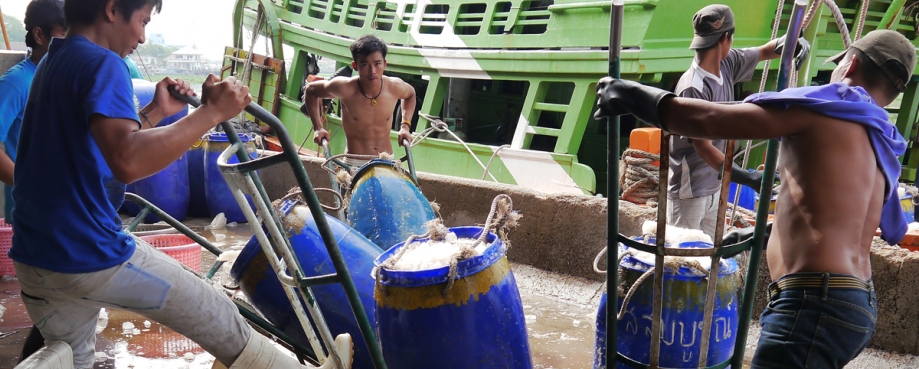
The Seafood Working Group – a global coalition of human rights, labor and environmental organizations working to end forced labor in the global seafood industry – has put out a critical statement detailing ways in which the Fairness, Integrity, Safety and Health (FISH) Standard for Crew certification does not offer a ‘legitimate or effective mechanism for the identification of labor abuse on fishing vessels in seafood supply chains.’
The SWG statement identifies nine areas where the current certification fails to adequately address or credibly safeguard the very workers that it is intended to protect; not least in that there is no meaningful role for workers or their representatives in the development, monitoring and enforcement of the certification.
ETI’s Nick Kightley explains that the current business model for the seafood industry, which has been put in place by companies, by international bodies and by States, is built on elective action by responsibly-minded businesses. It takes too few steps to put genuine pressure on industry players who are not ‘willing’ to uphold set standards and adhere to good practice that protects workers’ rights and environmental sustainability.
We don’t want to see this fresh initiative trip up at the first hurdle by failing to include workers and their representatives (and companies and their representative bodies) in the core, constructive dialogue.
Nick Kightley, ETI Strategic Lead - Food and Farming
ETI welcomes the opportunity for a wider debate about how best to bring improvements for workers and to ensure the sustainability of the seafood industry as a whole. As Nick explains, ‘This is not about singling out a particular standard for criticism above all others; however, we’d like to see a clear invitation to discuss the matters raised.’
